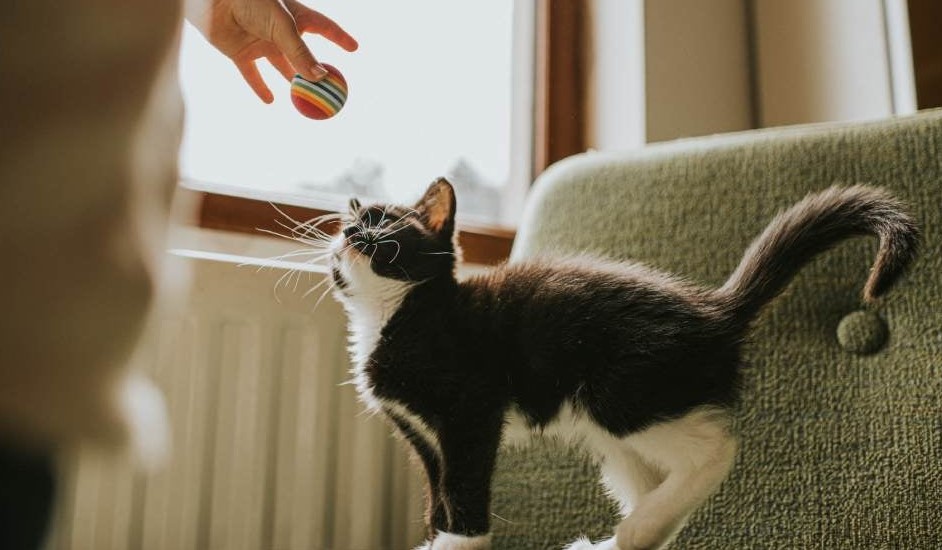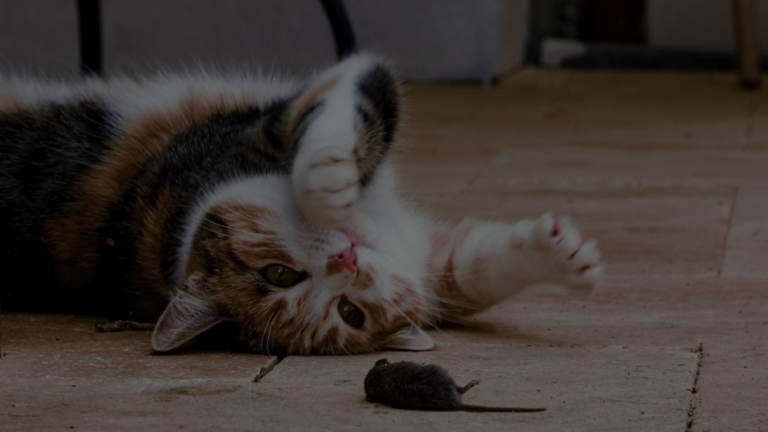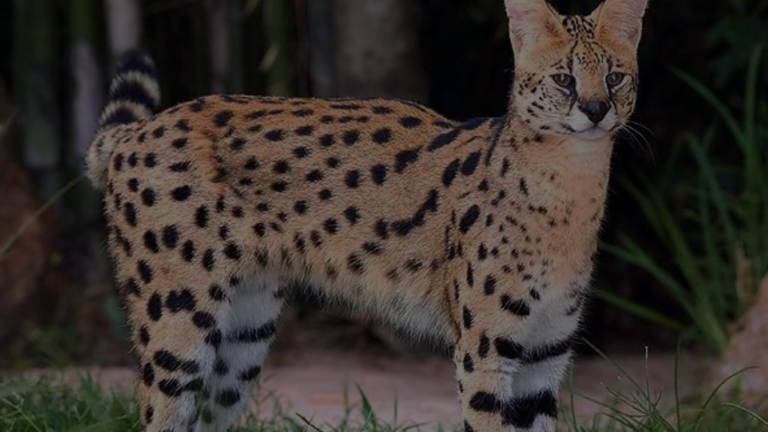Cats come in all shapes and sizes, but if you’ve noticed that your feline friend has packed on a few extra pounds, you might be wondering, “Why is my cat so big?” Feline obesity is a common issue that affects many pet owners and their cats. In this article, we will delve into the reasons behind your cat’s weight gain, the health risks associated with obesity in cats, and practical tips to help your furry friend shed those extra pounds.

Understanding Feline Obesity
What Is Feline Obesity?
Feline obesity occurs when a cat carries excess body fat, resulting in an unhealthy and overweight condition. It is a prevalent problem among domestic cats and can have serious consequences for their overall well-being.

Why is my cat so big?
Several factors can contribute to a cat’s weight gain:
- Diet: Feeding your cat high-calorie foods or excessive treats can lead to weight gain. Cats require a balanced diet to maintain a healthy weight.
- Lack of Exercise: Cats that lead a sedentary lifestyle are more prone to obesity. Encouraging play and physical activity is essential for keeping your cat fit.
- Spaying or Neutering: While spaying or neutering is essential for controlling the feline population, it can lead to a slower metabolism, making it easier for cats to gain weight.
- Medical Conditions: Certain medical conditions, such as hypothyroidism and diabetes, can contribute to weight gain in cats. Consult your veterinarian if you suspect a medical issue.
Health Risks of Feline Obesity
Carrying excess weight can have severe health implications for your cat:

- Diabetes: Obesity is a significant risk factor for diabetes in cats. Managing weight can help prevent this condition.
- Joint Problems: Extra weight puts strain on your cat’s joints, leading to arthritis and reduced mobility.
- Heart Disease: Overweight cats are at a higher risk of heart disease, which can impact their quality of life.
- Lower Life Expectancy: Obese cats often have a shorter lifespan due to the associated health issues.
Managing Your Cat’s Weight
Consult Your Veterinarian
If you’re concerned about your cat’s weight, the first step is to consult your veterinarian. They can assess your cat’s overall health and guide a suitable weight management plan.
Balanced Diet
Ensure that your cat is eating a balanced diet that meets their nutritional needs. Measure their food portions to avoid overfeeding, and consider switching to weight management cat food.

Portion Control
Avoid free-feeding your cat. Instead, establish a regular feeding schedule with controlled portion sizes. This helps prevent overeating.
Increase Physical Activity
Encourage playtime and exercise to help your cat burn calories. Interactive toys and laser pointers can be great tools for engaging your cat in physical activity.
Slow, Gradual Changes
When adjusting your cat’s diet or exercise routine, make changes gradually. Sudden changes can stress your cat and may not yield lasting results.

Monitor Progress
Regularly weigh your cat and track their progress. Adjust their diet and exercise routine as needed to ensure a steady and healthy weight loss.
Additional Resources
For more information on feline obesity and cat care, consider exploring these reputable resources:
Recommended Articles
Recommended Video
Finally, if you wonder, “Why is my cat so big?” This issue needs to be addressed immediately. Feline obesity is a manageable condition, and with the right care, you can help your cat achieve a healthy weight and enjoy a long, happy life.
FAQs – Why Is My Cat So Big
Can cats be naturally big?
Yes, some cat breeds, such as the Maine Coon and Norwegian Forest Cat, are naturally large.
Why is my male cat so large?
Male cats are generally larger than female cats. Additionally, some cat breeds, such as the Maine Coon and Norwegian Forest Cat, are naturally larger than other breeds.
Is my cat fat or just a big cat?
To determine if your cat is fat or just a big cat, you can feel their ribs. If you can feel their ribs easily, then your cat is a healthy weight. If you cannot feel their ribs, or if they have a noticeable belly pouch, then your cat may be overweight.
How do you know if your cat is too big?
If you are concerned that your cat may be too big, you can ask your veterinarian to assess their body condition. Your veterinarian can also help you develop a weight loss plan for your cat if necessary.
What type of cats get big?
Large cat breeds include the Norwegian Forest Cat, Maine Coon, and Ragdoll.
What is the largest legal cat to own?
The largest legal cat to own is the Savannah cat. Savannah cats are a cross between a domestic cat and a serval, which is a wild African cat. Savannah cats can grow to be over 20 pounds and can be up to 24 inches tall at the shoulder.
Do cats get bigger as they age?
Cats typically reach their full adult size by around 1 year of age. However, some cats may continue to grow slightly until they are 2 years old.
Can big cats be nice?
Yes, big cats can be nice. However, it is important to remember that big cats are still wild animals and can be dangerous. It is important to respect their boundaries and never to approach a big cat in the wild.







